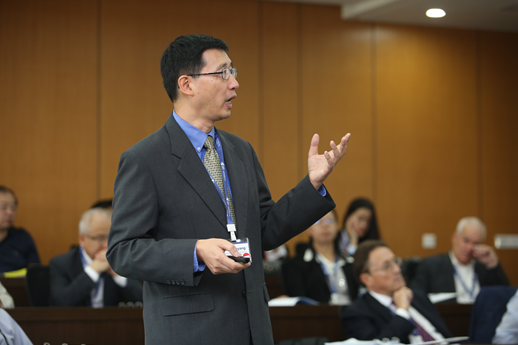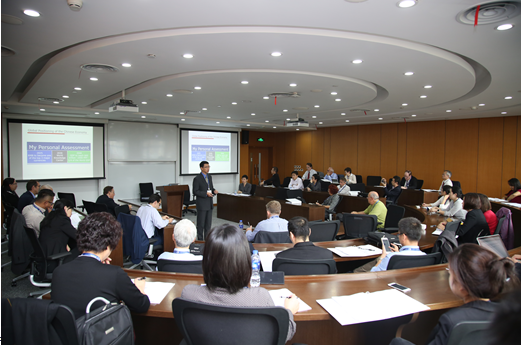On Oct. 16-18, 2016, the 6th International Business School Shanghai Conference was held at Antai College of Economics & Management, Shanghai Jiao Tong University. Prof. XIE Danyang was invited to give a speech at the session “Win-win collaboration between business schools from China and ‘One Belt One Road’ Countries”.

Prof. Xie first analyzed China’s strength in leading the “One Belt One Road” initiative and discussed the associated opportunities and benefits. He then highlighted the potential difficulties. The main challenges have to do with the land-based “Silk Road Economic Belt”: territorial disputes and religious diversity among the countries along the Road that may create regional instability and hold-up problem, especially in the event of a government turnover, an issue that often worries business practitioners. Sinophobia by the West is another concern. Prof. Xie suggested that multiple belts in the form of hub and spoke structure of trade routes should be set up to mitigate the hold-up problem, with the hubs to be located in stable regions. He also argued that joint financing by AIIB, which has a broad membership, helps to convince the West of China’s intention for Win-Win collaborations. He pointed out that ultimately, it is the cultural exchange and increased mutual understanding through interactions that will ensure the success of the “One Belt One Road” initiative. Hong Kong University of Science and Technology offered an interesting example of such interactions: In 2013, HKUST Business School and Saudi Aramco joined forces to offer an MBA program in Saudi Arabia. This program has been very influential that the HKUST leadership is thinking about similar joint programs with institutions in other countries. Prof. Xie then elaborated on Wuhan’s increasingly important role in national development strategies and its potential attraction to OBOR countries. He cited statistics showing that over a thousand students from 45 OBOR countries are currently studying at Wuhan University. Among them, 190 students from 35 OBOR countries are studying in the Economics and Management School. Prof. Xie invited the Business School Deans in the audience to visit EMS of Wuhan University, which has 300 faculty members and over 10,000 students and was recently accredited by EQUIS, to come and explore the opportunities for Win-Win collaborations.

With the participation and support from world-renowned business schools, the International Business School Shanghai Conference has become the largest Dean-level summit in Asia. The conference is designed to take the pulse of the era and discern the direction of international business schools in educational development, as well as to promote world economic development.
(Source: School of Economics and Management, edited by Hu Sijia)


